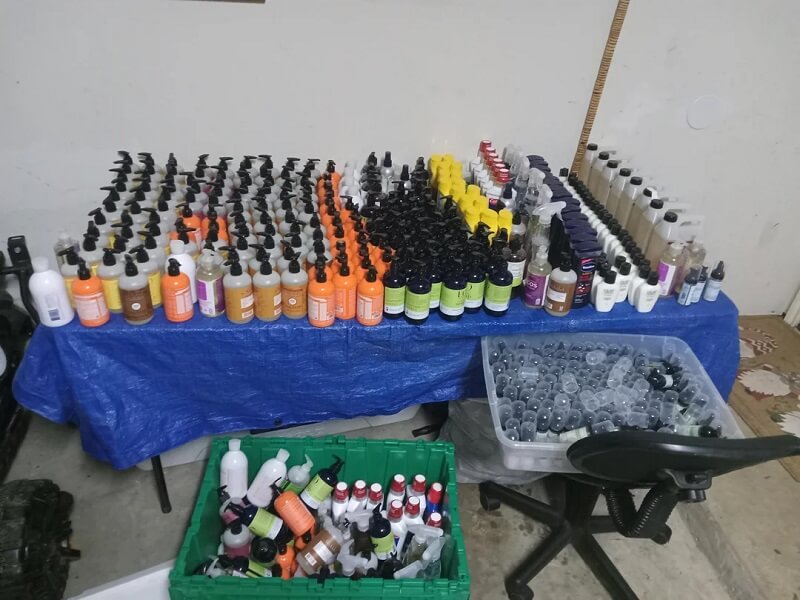It is not uncommon for dumpster divers to find useful items in trash bins. In fact, there is a whole Reddit community dedicated to the dumpster diving.
Now, a recent post in the r/DumpsterDiving subreddit is making waves after a diver salvaged an absurd amount of hand soap, bodywash, sanitizer, and other items from the trash.

What happened?
A savvy dumpster diver who lives near a truck yard spotted a trucker tossing a pallet of products into the bins, and they sprang to action to recover the items.
"Dumpster Gods Smiled Down on Me," the original poster wrote, sharing two photos revealing an array of premium household and personal care products lined up on a table and filling two large bins. The haul included a large assortment of Mrs. Meyer's hand soaps.
Redditors had conflicting feelings on the matter — some were excited for the OP, and others were frustrated that the valuable goods would have gone to waste.
"So many emotions," one commenter shared. "I'm angry that companies waste so much product and even lock up their dumpsters so people can't rescue it. I'm happy because this is such a good score."
"It makes me happy and angry at the same time," another person agreed. "I can't believe all they throw away that could be given to those in need. I'm always amazed."
Why is this important?
Manufacturing, packaging, and transporting goods takes energy, so waste has an impact on the world around it.
Our management and consumption of resources can significantly impact the quality of our air (particularly if items are made or distributed through highly polluting processes), the health of our ecosystems, and even the price of goods.
Hand soap, for example, is widely acknowledged as a crucial tool to help maintain public health, so its production and availability are important, according to the Centers for Disease Control and Prevention (CDC) and the World Health Organization (WHO).
However, many soaps (and other personal care items) come in containers made of plastics, most of which are made from dirty fuels such as natural gas and crude oil.
Some products even contain cancer-linked PFAS (per- and polyfluoroalkyl substances), also known as "forever chemicals." These toxic chemicals can contaminate our water and soil.
While Mrs. Meyer's sells PFAS-free goods, according to its website, it acknowledges that not every plastic element of its packaging is recyclable, highlighting the importance of reusing its refillable containers even as the company works toward adopting more sustainable alternatives.
Why would the trucker dump so many products?
It is not clear what led to the mass disposal of so many valuable products. Some Redditors speculated that there was a miscommunication, with the onus being on a third-party retailer (rather than the manufacturers — in this case, Mrs. Meyer's) for loading the pallet onto the wrong truck.
"That sounds like a wrong pallet placed on truck, store manager wouldn't take it, and [warehouse] is like: 'Dump it. [Too] expensive to ship back!" one commenter wrote.
"That is very likely what happened," another commenter agreed. "I was the inventory manager for a grocery chain. … Any time something was shipped in error I'm like, 'Oh yeah, we'll dispose of it for you, just leave it there on the dock.'"
The second commenter also explained that they'd allow other employees to take home products that would otherwise end up in the trash and then sell the rest on platforms like eBay.
Without more information, it's uncertain whether the trucker or store manager would have been empowered by their companies to do the same.
What can be done about material waste more broadly?
Plenty of brands are rethinking how they package their products, eliminating the amount of plastic or ditching it altogether. Supporting these brands when possible can further demonstrate to companies that it is profitable to make more eco-friendly decisions.
You can also swap single-use plastic products for non-plastic alternatives that stretch your dollar for longer, with shampoo bars, metal razors, and reusable sandwich bags among the options.
Join our free newsletter for cool news and actionable info that makes it easy to help yourself while helping the planet.









